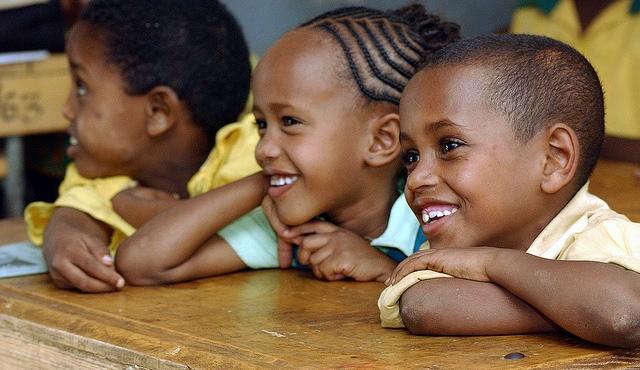By Silvia Montoya, Director of the UNESCO Institute for Statistics (UIS).

Better Data = Better Policies
This is a busy but exciting time at the UNESCO Institute for Statistics (UIS), where we are getting ready to provide you with more country-level and timely data on all levels of education. On 28 February, we will be updating our global education database.
While the global numbers and regional averages will not change, we will be releasing more data from countries so that you have a more complete picture of the education situation facing children, youth and adults the world over.
With this data release, we want to encourage countries, donors, international organizations and engaged citizens – to make the case for education at the next High-Level Political Forum on Sustainable Development, which will meet this July and discuss global progress in education. Even the most basic data show that we are far from the goal of ensuring that every child is in school and learning by 2030.
Too many children still don’t have access to education. Despite all the promises and all the efforts made to date, there are still around 262 million – or one out of every five – children, adolescents and youth aged 6 to 17 who are out of school. That figure rises to one in three children in low-income countries. What’s more, our data reveal that progress has stalled, with the rates and numbers remaining more or less static for years.
The learning crisis is global. An estimated 617 million children and adolescents worldwide are not reaching minimum proficiency levels in reading and mathematics. While one-third of them are out of school, two-thirds are sitting in the world’s classrooms, waiting for the education they have been promised.

Our collective task is to ensure that every child is in the classroom and that every child acquires the basic skills they need for a fulfilling adult life. This is crucial, given the critical importance of learning for the achievement of the 2030 Agenda for Sustainable Development.
There is an urgent need for more and better data to build the education systems we need:
It is therefore essential to better support countries that are struggling to meet the demand for more and better data for the SDGs.
We want to ensure that line ministries and national statistical offices have the training, resources and support they need to collect and use data to support their own education priorities. We want to ensure that standards and tools are in place to produce the international data we need to track progress and demolish barriers to the achievement of SDG 4.
Fund data
The UIS already supports national data collection and use, and develops global public goods as part of the investment case for data. And now we are calling on all development partners to fund global, regional and country-level data as a public good.
If you believe, as we do, in the transformative power of data, please join us in our quest to unleash that power to drive positive change. In the coming months, we will be working with partners, such as the Global Education Monitoring Report, to analyse the trends and demonstrate that “better data = better policies”.
But we cannot do this alone. We need your help to support the call for greater investment in education and data to ensure that no child is left behind. Together, let’s use the data as a rallying call for action and funding at the High Level Political Forum.
Join us on social media @UNESCOstat and the call to #FundData
Leave a comment